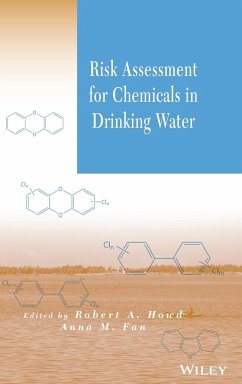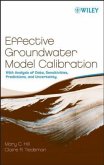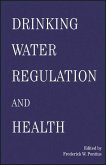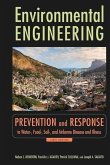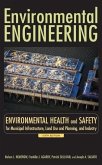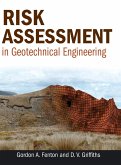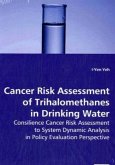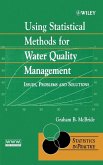Risk assessment of drinking water is a major worldwide concern. Risk Assessment of Chemicals in Drinking Water provides a comprehensive reference on state-of-the-art risk assessment methodologies for drinking water, and is a definitive guide for professionals in the field. Includes descriptions of the use of variability analysis, exposure analysis, physiologically based pharmacokinetics, and modeling for both cancer and non-cancer endpoints Describes the practices of major organizations like the U.S. EPA, Health Canada, World Health Organization, and California Office of Environmental Health Hazard Assessment Explains how to include sensitive sub-populations in risk assessments Covers the potential of using genomic and proteomic screens.
A comprehensive reference on state-of-the-art risk assessment methodologies for drinking water
Risk Assessment for Chemicals in Drinking Water discusses the major steps and goals in risk assessments and suggests ways to improve the methodologies and accuracy, while consolidating up-to-date information on the current principles and practices in one authoritative reference. After an enlightening overview of risk assessment practices and regulatory guidelines, it:
_
Includes descriptions of the use of variability analysis, exposure analysis, physiologically based pharmacokinetics, and modeling for both cancer and non-cancer endpoints
_
Describes the practices of major organizations, including the U.S. EPA, Health Canada, World Health Organization, and California Office of Environmental Health Hazard Assessment
_
Includes complete chapters on risk assessment for essential nutrients, arsenic, chloroform, and perchlorate
_
Explains how to address susceptible sub-populations, including the elderly and infants and children, in risk assessments
_
Covers the potential of using genomic and proteomic screens
_
Addresses recent advances, emerging issues, and future challenges
With contributions and perspectives from leading scientists, this is the definitive resource for health and environmental scientists, toxicologists, risk assessors and managers, regulators, consultants, and other professionals responsible for the safety of drinking water.
Hinweis: Dieser Artikel kann nur an eine deutsche Lieferadresse ausgeliefert werden.
A comprehensive reference on state-of-the-art risk assessment methodologies for drinking water
Risk Assessment for Chemicals in Drinking Water discusses the major steps and goals in risk assessments and suggests ways to improve the methodologies and accuracy, while consolidating up-to-date information on the current principles and practices in one authoritative reference. After an enlightening overview of risk assessment practices and regulatory guidelines, it:
_
Includes descriptions of the use of variability analysis, exposure analysis, physiologically based pharmacokinetics, and modeling for both cancer and non-cancer endpoints
_
Describes the practices of major organizations, including the U.S. EPA, Health Canada, World Health Organization, and California Office of Environmental Health Hazard Assessment
_
Includes complete chapters on risk assessment for essential nutrients, arsenic, chloroform, and perchlorate
_
Explains how to address susceptible sub-populations, including the elderly and infants and children, in risk assessments
_
Covers the potential of using genomic and proteomic screens
_
Addresses recent advances, emerging issues, and future challenges
With contributions and perspectives from leading scientists, this is the definitive resource for health and environmental scientists, toxicologists, risk assessors and managers, regulators, consultants, and other professionals responsible for the safety of drinking water.
Hinweis: Dieser Artikel kann nur an eine deutsche Lieferadresse ausgeliefert werden.
Currently accepted for use as landscaping, it becomes clear that recycled water will be injected into drinking water chain. That use makes the material in the book more important. ( Journal of Hazardous Materials , January 31, 2008)
"Provides a comprehensive reference on state-of-the-art risk assessment methodologies for drinking water." ( International Food Information Service , 2007)
"Provides a comprehensive reference on state-of-the-art risk assessment methodologies for drinking water." ( International Food Information Service , 2007)

